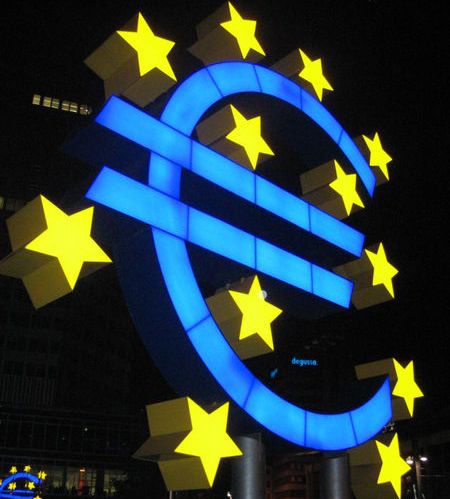ROUNDUP: EU clinches deal on 5-billion-euro stimulus plan
 Brussels - European Union leaders clinched a deal Thursday on the use of 5 billion euros (6.9 billion dollars) in community funds to stimulate the economy, after Germany received assurances that the money would be spent by the end of 2010.
Brussels - European Union leaders clinched a deal Thursday on the use of 5 billion euros (6.9 billion dollars) in community funds to stimulate the economy, after Germany received assurances that the money would be spent by the end of 2010.
"Some of the details still have to be ironed out, but the 5- billion-euro package has been agreed in principle," a diplomat familiar with the talks told Deutsche Presse-Agentur dpa.
The agreement comes after four months of haggling among member states and marks a personal victory for EU Commission President Jose Manuel Barroso, who made the proposal in November. It is also a victory for the Czech presidency of the bloc, which successfully mediated talks during a summit of EU heads of state and government in Brussels.
A last-minute compromise text tabled by the Czech government states that "due to the urgent need for the stimulus, all legal commitments implementing the budgetary commitments ... should be made before the end of 2010."
Experts expressed skepticism that member states would be able to spend the entire sum so quickly.
News of a deal came after its biggest critic, German Chancellor Angela Merkel, said at the start of talks in Brussels that "any additional measures should only be taken if a substantial part of these measures can be implemented very quickly."
"Otherwise, they would not help tackle the crisis," Merkel said.
The European Commission proposed allocating 5 billion euros in what it called "unused" community funds to finance a series of projects promoting high-speed internet, carbon capture and storage facilities, offshore wind farms and energy interconnections.
While the money is only a small part of the EU's 400-billion-euro economic recovery package, it immediately sparked squabbles, with the biggest contributor to the EU budget - Germany - initially arguing that any "unused" money should be returned to member states, and others objecting to where and how the money was being spent.
The compromise text includes 200 million euros for the controversial Nabucco pipeline project, which is intended to carry gas from Central Asia to Austria via Bulgaria, Romania and Hungary, bypassing Russia.
However, the 7.9-billion-euro pipeline has suffered a series of delays and is not expected to be completed before 2013, at the earliest.
The Czech compromise text earmarks a total of 2.3 billion euros for gas and electricity infrastructure projects.
Some 505 million euros are to be spent on offshore wind energy projects, 1.2 billion for carbon capture and storage programmes, and a further 1 billion for the spread of broadband internet in rural areas.
The text makes it clear that no money will be taken from the EU's 2008 budget, thus meeting a request by Germany. It also allocates fresh money to Portugal, Austria and Spain.
"A deal would mark a victory for the Czech presidency, for Barroso and the EU," said Piotr Kaczynski of the Centre for European Policy Studies, a Brussels think tank. (dpa)